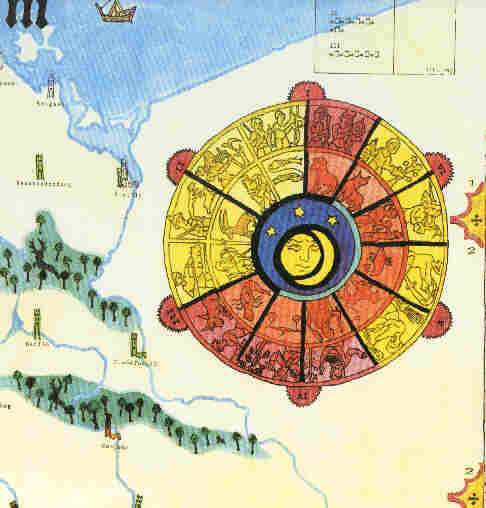4. THE GAME CALENDAR.
Although the game calendar is being treated as the last
of the four important aspects of the game, it is intimately connected with
the other three.
The game has a maximum of six game years. Each game year
is divided into 12 months and each of these represents a turn.

Each game year can also be considered as being divided
into three seasons. The first of these covers the true campaigning season.
It lasts from April until August inclusive, i.e., 5 game turns. In practice,
because April is devoted entirely to raising armies and because there is
normally no movement in this month (unless using the optional rule for
winter quarters), it is effectively four game turns in length. Troops
which are raised are paid for in April, but will serve thereafter until
the end of August without further payment.
The second of these is the extended campaigning season,
which lasts from September until the end of the November turn. This is
identical to the true campaigning season with the exception that troops
have to be paid for every month at the same rate as they were paid in April.
An expensive, even a ruinous business. Troops however do not have to
be paid for in any month in the extended campaigning season provided that
they have achieved a military success during the month in question [see
4.7 for the definition of "military success"]. Each such active army must
be treated separately. It is this matter of payment for troops in September,
October and November which is the difference between the true campaigning
season and the extended campaigning season. To put it another way; if a
player has a large army group and if he wants to use it to go after a marriage,
it is pointless attempting it if the marriage is out of reach before the
end of August, unless the player has the money to spend on paying the troops
in September (and possibly in October and November as well) and unless
he is prepared to make such payments. Remember that after it has moved,
an army cannot carry out more than one action in the turn. A military attack
is an action. A marriage is an action.
If a player bungles and discovers that one of his armies
is in an area of movement in the September (or in October or in November)
turn where it cannot carry out a successful military action, the troops
will have to be paid.
Sieges too are affected. An army which cannot bring a
siege to a successful conclusion in any month after August will have to
pay its troops, or break off the siege by the end of August, or try a storm
attack if it has sufficient troops present by the end of September.
Yet another point to bear in mind is the fact that success
cannot be guaranteed in a military action. In other words, a failed military
action in any month after August means that the troops belonging to the
army concerned will have to be paid.
Remember that the true campaigning season is a short one
of only four effective turns, after which one enters a series of just three
turns which could prove to be rather more risky than those of the true
campaigning season.
Disbanding an army always costs money, unless the army
achieves a military success in the same turn. It follows therefore that
if a player is compelled to disband an army in any month after August
as a result of, for example, a military defeat, he has not only to pay
the troops at a rate of M. 50 per knight/per 10 mercenaries, but he will
also have to pay the same amount of money to disband the army in addition.
And he may have to pay even more money in order to revoke a state of demoralisation.
Geography, the economic system and the calendar each apply
their own, distinctive sets of strictures on the player. These different
sets of strictures readily interact with each other, and the player has
to be aware of them, both singly and the ways in which such interaction
occurs.
One further note, which is not necessarily connected with
the calendar: an army has to be disbanded if all of its military commanders
are lost (this may happen over a series of military actions, or all at
once). It is, however, still possible to have achieved a military success
in such circumstances, and - in such circumstances where the army has to
be disbanded notwithstanding a military success - the player will not have
to pay the troops or have to pay for disbanding the army, even if this
occurs in a turn after the August one.
The final season is the winter one. All armies will have
been disbanded by the end of November (unless one or more players are making
use of optional rule I = winter quarters) but family members who are training
for a Church post continue to progress through the monastery/university,
and may even attain the coveted Church post.
Continue
Back to the homepage of Kuhlmann-Geschichtsspiele
